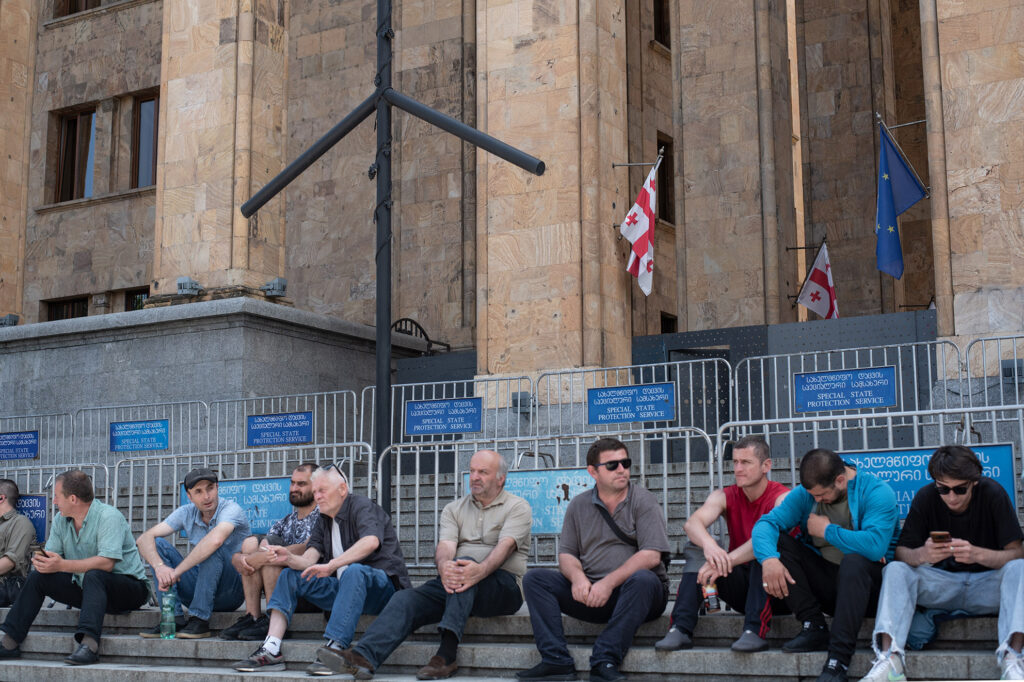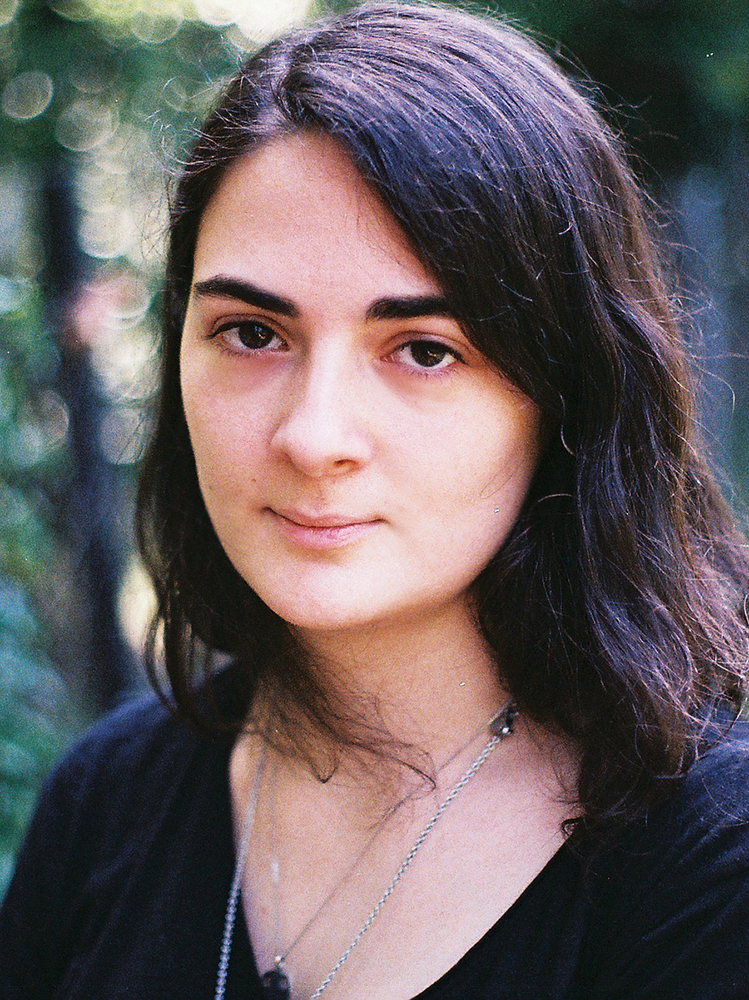Manganese miners from the central Georgian town of Chiatura have for weeks been on strike over their working conditions. But since a portion of the strikers moved their protest to the capital Tbilisi, far-right figures have been seen attempting to ingratiate themselves into the protests, leaving the miners unsure who to trust.
When several dozen striking miners and their supporters arrived in Tbilisi on 19 June, their intention was to bring wider attention to their cause. And the strike resonated with many Georgians, especially as images of miners who had sewn shut their mouths in despair emerged.
[Read more: In pictures | Portrait of a mass hunger strike]
Some of those to join their demonstration in solidarity were young people who previously protested, and defeated, the government’s planned foreign agent law.
One was Lucas Ablotia. Along with several of his friends, Ablotia was outside the parliament demonstrating in support of Lazare Grigoriadis when the miners arrived in Tbilisi.
‘We learned that miners were protesting inhuman treatment, including violations of labour rights. Obviously, I wanted to express solidarity and would stand with them as a citizen’, Ablotia told OC Media.
Ablotia was draped in an EU flag and held Georgian and Ukrainian flags. ‘We always stand at protests like this’, he said.
But Ablotia and his friends weren’t welcomed with open arms.
‘Several people approached me and spoke to me in a bad tone, that I was ruining this protest because I stood with the EU flag, that the EU is depraved, that Ukraine started the war and it’s Ukraine’s fault what is happening in Ukraine.’
‘They accused me of being a supporter of Misha [former President Mikheil Saakashvili]. They told me that Misha started the war in 2008, and things like that.’
‘It is not safe to be there anymore. They threaten us, they yell at us. They told me I am a Mishisti faggot and things like this.’
In the following days, the young people did not attend the miners’ demonstration.
But Ablotia is not sure who it was that was harassing them. At least one was scolding them ‘in the name of the miners’, he said.
‘We spotted some fascist groups there’, he added.
Extremists at the picket line
While following the miners’ strike in Tbilisi, OC Media identified at least five people affiliated with the far-right extremist group Alt Info hanging around the protest. On several occasions, we overheard them attempting to discredit the young people present, often using homophobic language.
One was Giorgi Odzelashvili, who marched with the miners from parliament to the offices of the mining firm, Georgian Manganese.
Odzelashvili participated in the attack on the Tbilisi Pride office during the 5 July 2021 homophobic riots. He is active on Facebook, especially on a page called ‘Conscience Boys’, which advocates for the release of the handful of people arrested over the 5 July violence.
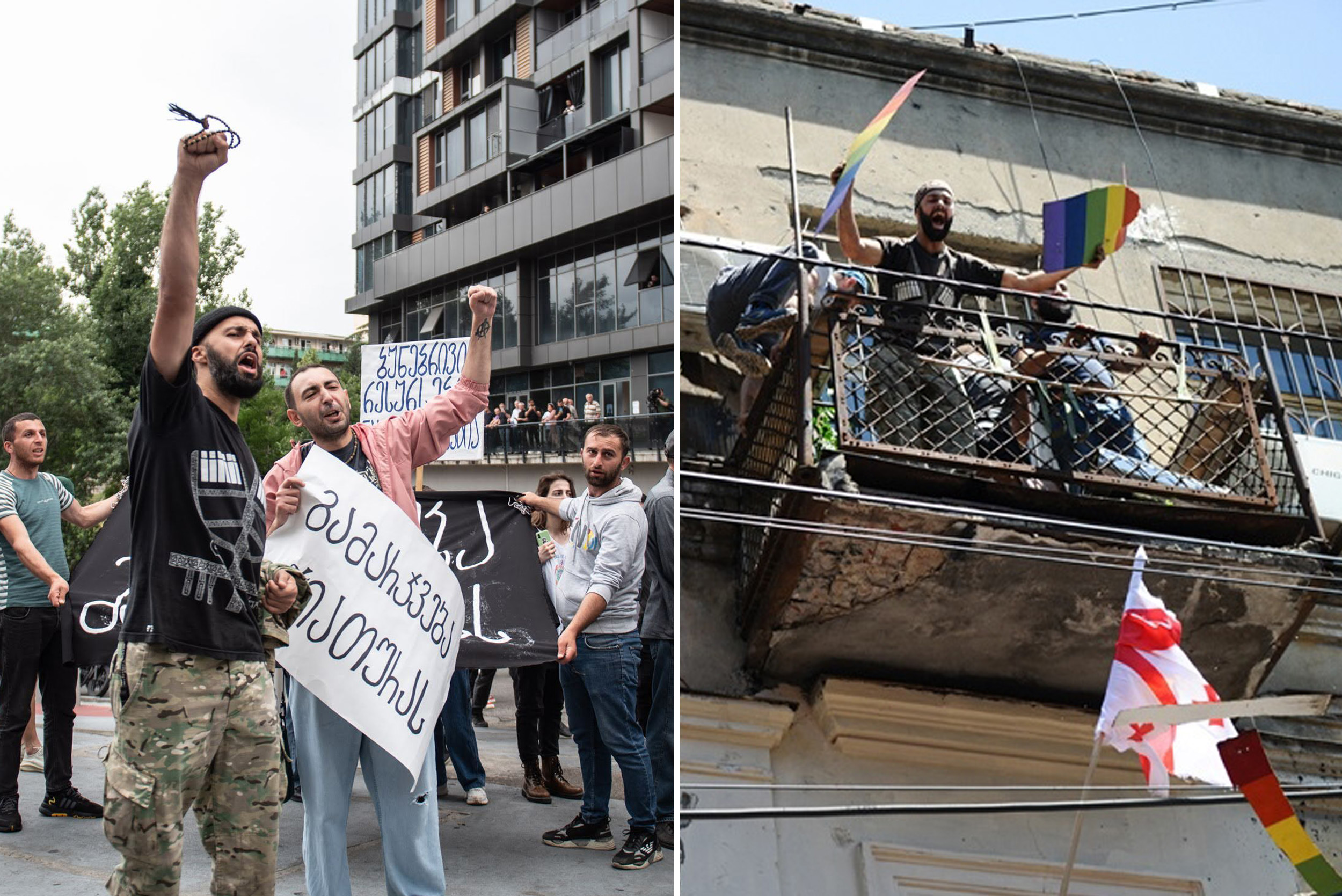
Another is Irakli Khomasuridze, a familiar face at violent far-right demonstrations.
In June 2022 Khomasuridze was convicted of attacking liberal politicians Khatuna Samnidze and Davit Berdzenishvili. He also threatened OC Media’s director and journalist, Mariam Nikuradze, at a protest outside Tbilisi City Court where some of those arrested over the 5 July violence were on trial.
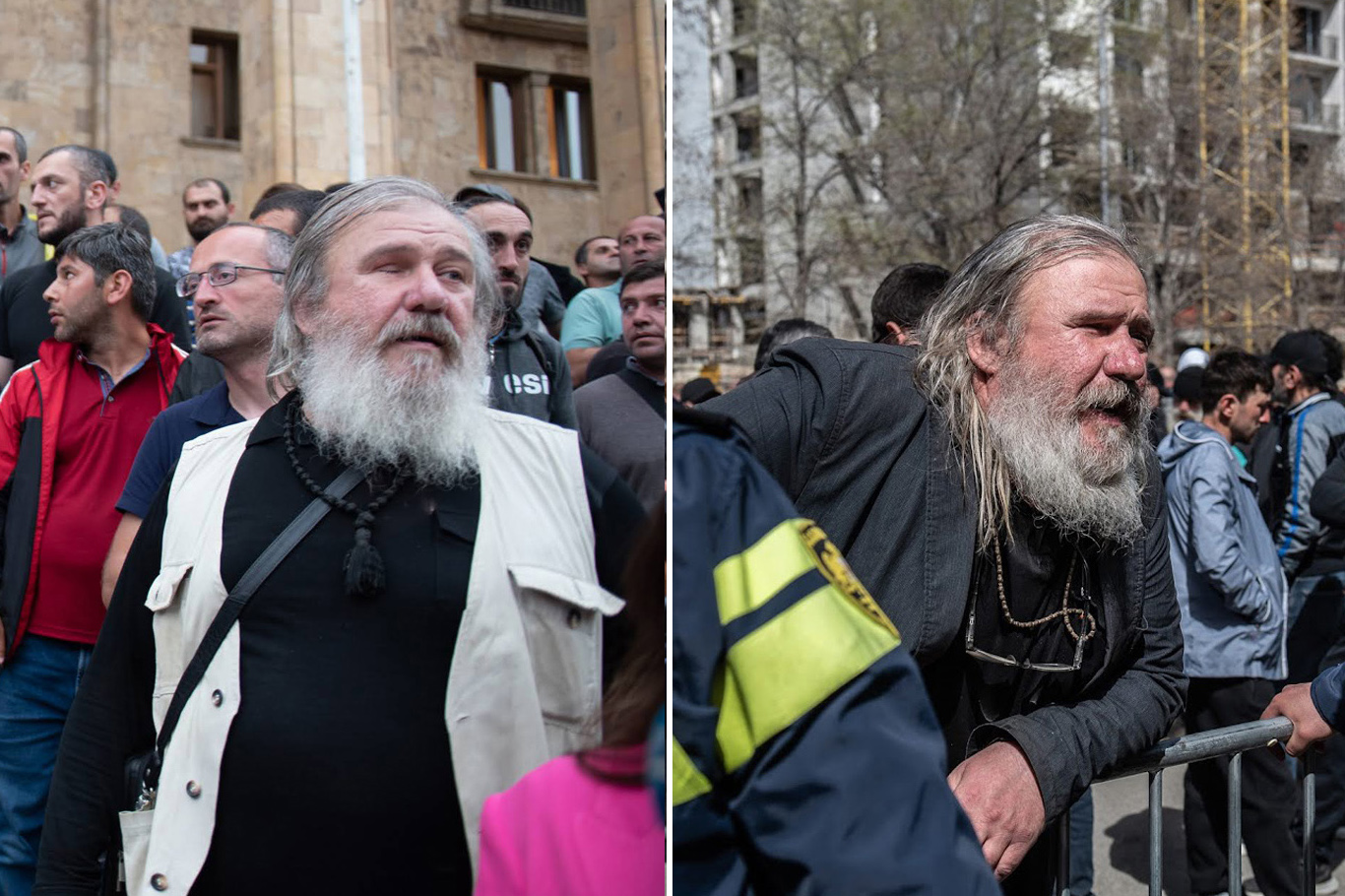
Zaza Mchedlidze, who was convicted of attacking journalists on 5 July, was also spotted at the miners’ protest.
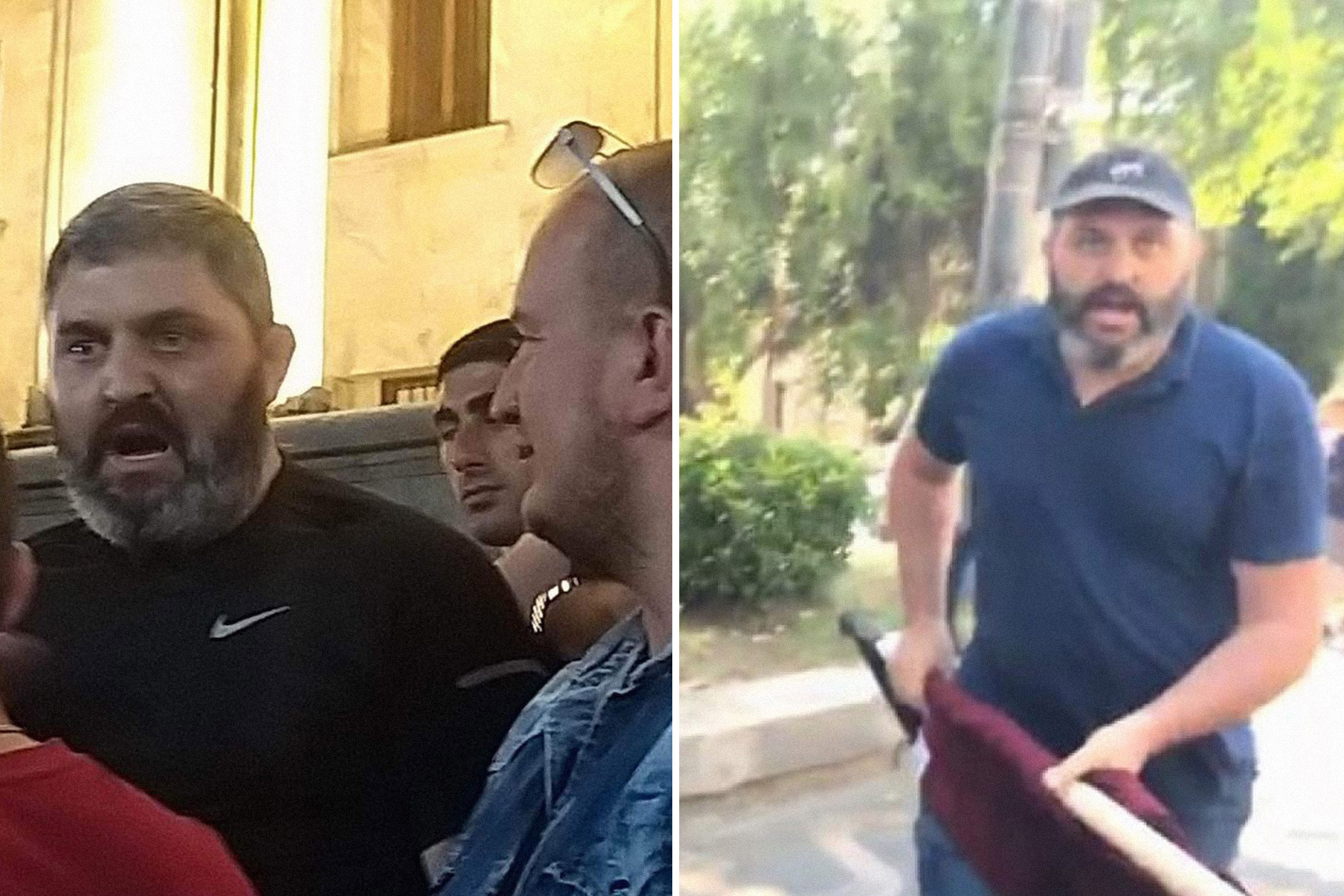
Gocha Surameli and Ramin Abesadze, both affiliated with Alt Info, were also present at the miners’ protest. Both were broadcasting live coverage and interviewing some of the miners.
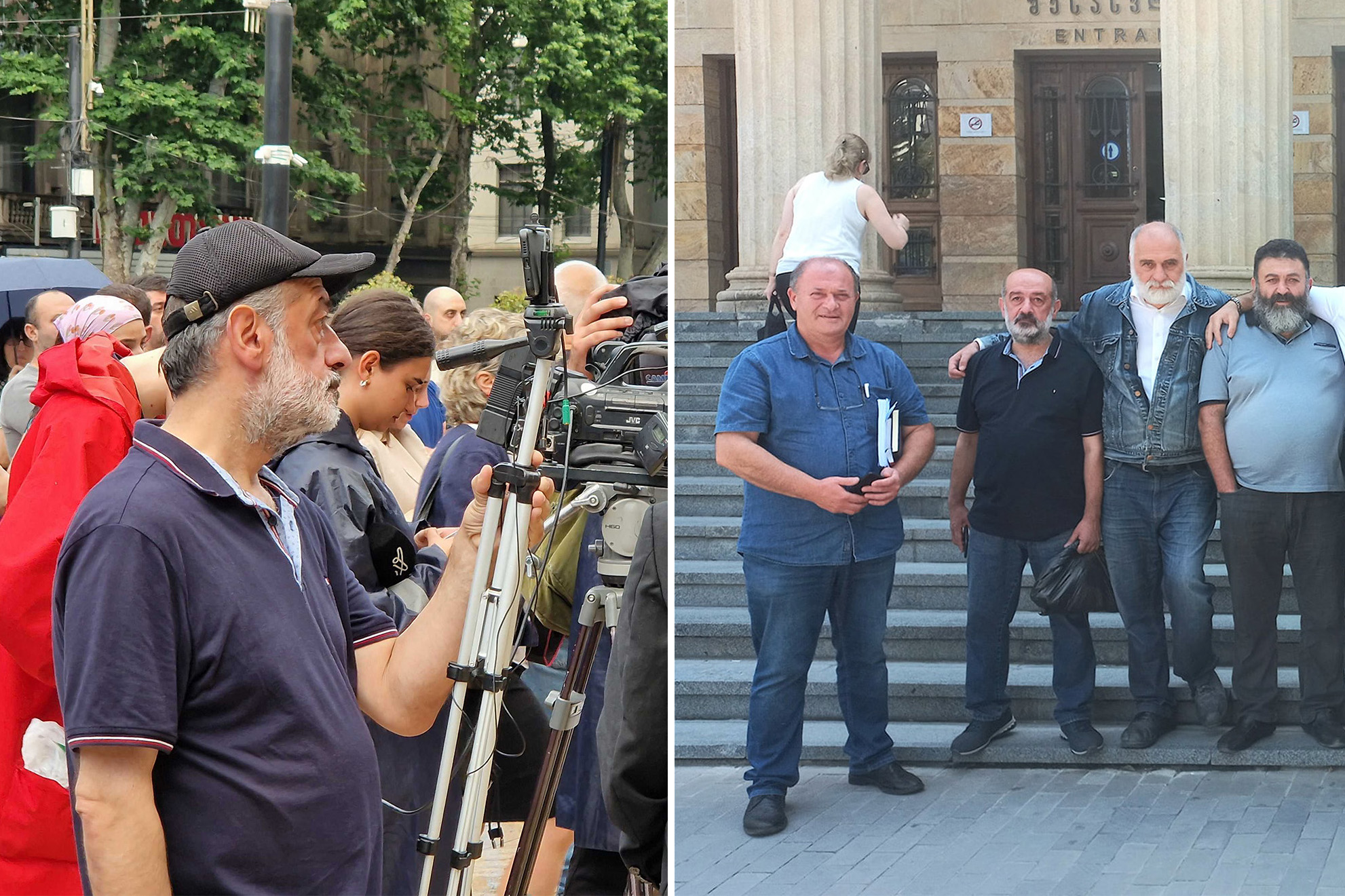
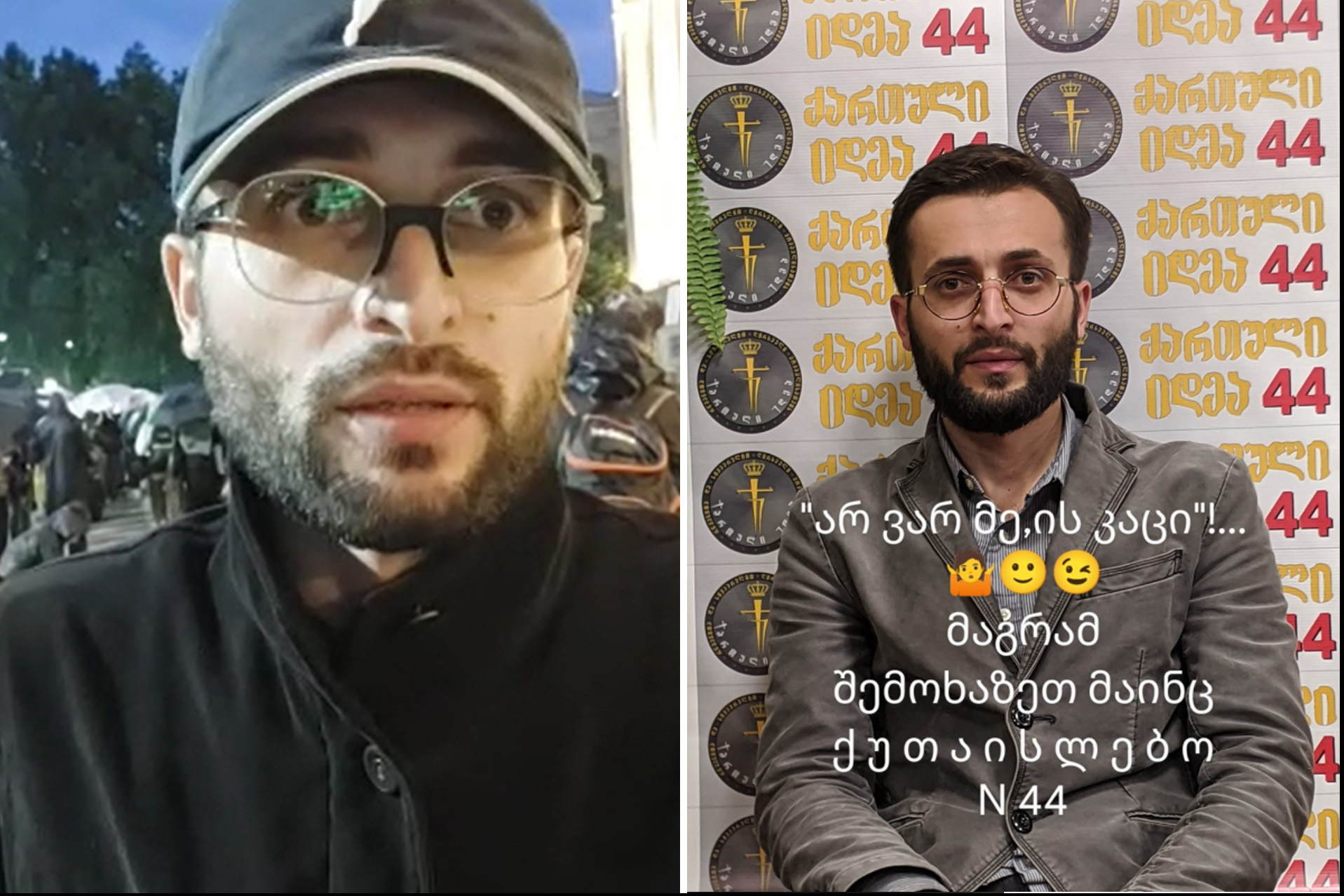
Prominent far-right campaigner Guram Palavandishvili was also spotted by others at the miners’ demonstration.
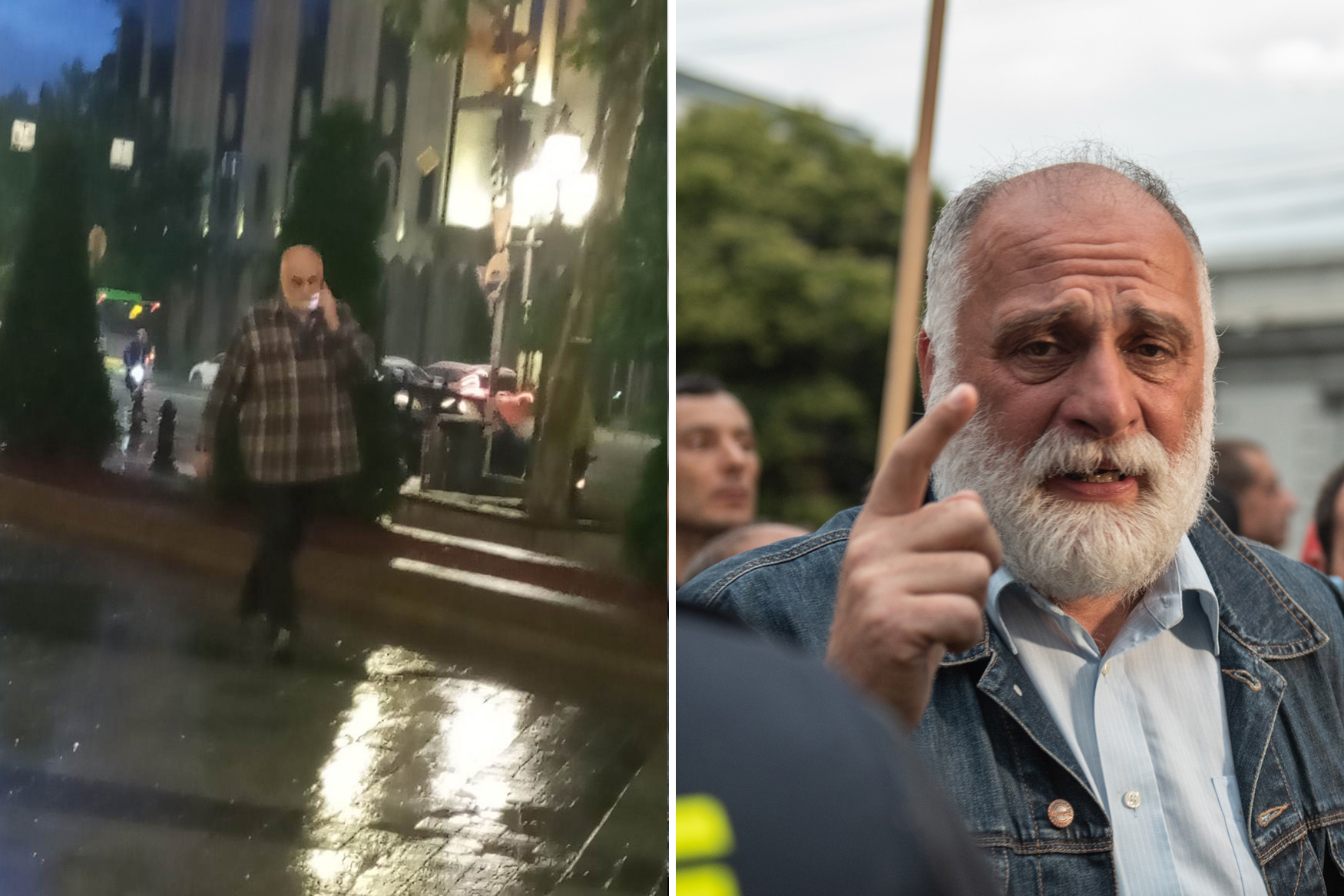
Do the miners support the far right?
OC Media collected photos of the far-right figures at the Tbilisi protest and showed them to some of the miners outside parliament to ask if they knew any of these people.
The miners recognised all of them but said they did not know them, and tried to distance themselves from the men.
Indeed, on 20 June, OC Media witnessed far-right campaigner Irakli Khomasuridze telling the miners to distance themselves from friends of Lazare Grigoriadis, the 21-year-old on trial for his role in the March protests. Khomasuridze was heard telling the miners that they were ‘faggots’ and ‘foreign agents’. In response, the miners told Khomasuridze to leave.
We also asked the miners what they thought of Konstantine Morgoshia, one of the leaders of Alt Info, who wrote on Facebook expressing support for the strike.
‘He is also one of those swine businessmen, yes’, one of them responded.
‘He is the leader of [Alt Info] and we are calling everyone to do business in the correct way. But a person like him, how can he stand next to us when he is doing the same [as the mining company]?’
‘We try not to get such people close to us’, he added.
Salome Shubladze is the director of social policy at a local rights group, the Social Justice Centre. The centre has long advocated for the miners in Chiatura and elsewhere in the country, and provides legal aid to them.
Shubladze told OC Media that she also noticed members of Alt Info at the miners’ protests, recalling one instance in which they criticised young people for their appearance.
‘They told them: “why are you wearing an earring, believe in Christ”. They responded that they came to express solidarity, but this man told them to believe in Christ first’, she recalled.
She said that the young people then asked the miners if they knew who this person was, which they said they didn’t.
The incident was one of those recounted by Lucas Ablotia that deterred him and his friends from continuing to attend the miners’ strike.
‘There was aggression towards others too’, he said, ‘including one person with earrings; they said they wouldn’t allow men with earrings close, that they’d beat them. There were threats like this towards people who looked different, who had dyed hair or colourful accessories. They kicked out many people very aggressively.’
Shubladze added that this was not the first time far-right groups had attached themselves to such protests, recalling the Namakhvani HPP dam protests.
‘Alt Info were chasing after young people who were not necessarily dressed in a conventional way. We see the same thing here’, she said.
And unlike the young people, who did not express any motivation other than solidarity for joining with the miners, ‘chasing after young people’ certainly seems to have been a primary motivation for the far right.
Giorgi Odzelashvili, one of the far-right campaigners spotted at the protest, posted a photo on Facebook on 19 June of a young man with a rainbow bag. It is unclear if the photo was even taken during the miners’ protest, but Odzelashvili claimed it was, stating that there were ‘a lot of faggots’ gathered there.
He urged supporters to join him while hinting at his violent intentions, telling his followers they should not be surprised if he were arrested.
Disappointment
The conflicts has left many of the miners distrustful of everyone and anyone without a personal connection to Chiatura.
Time and again, the miners who spoke to OC Media said their goal was simply to realise their right to just and dignified employment.
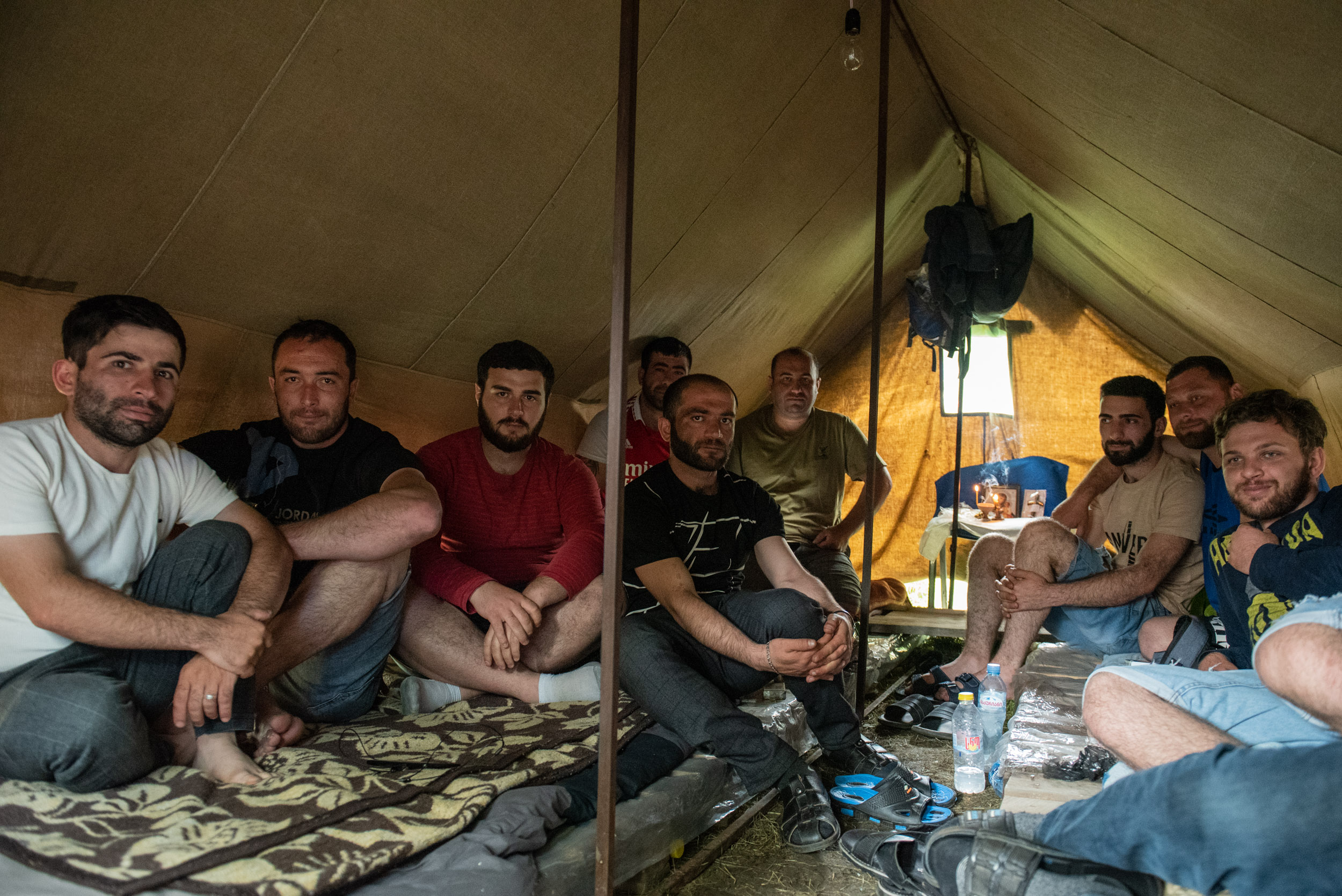
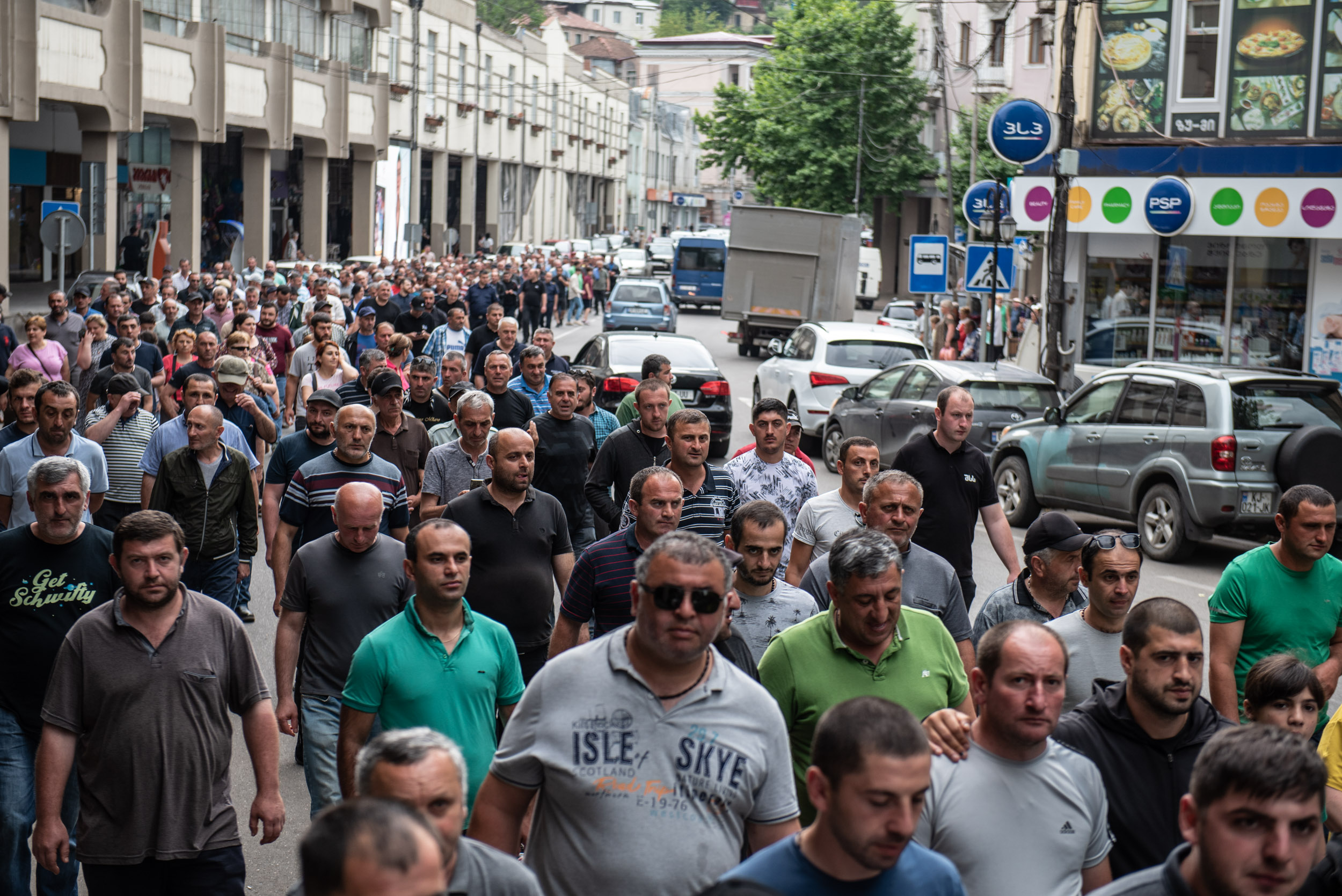
They said that many people had come to them, sometimes with pictures, sometimes with stories about specific people, telling them that they should avoid them. As a result, they no longer knew who to believe.
‘In the end, we decided not to let anyone close to our tribune. No one will be able to stand at the microphone except us’, one of them said.
Despite the confusion, they said they still wanted support.
‘We want many people to come and we want to let these people understand our problems as clearly as possible’, they said.
But the far-right presence has had an impact, with Ablotia and others saying they no longer felt safe attending.
The Social Justice Centre’s Salome Shubladze echoed suspicions among some that this may have been the point all along.
‘Obviously, when there are violent groups at a protest, some people will avoid going.’
While she said there was not enough evidence to link these groups directly to the government, it was visible that Alt Info’s goals were often in unison with those of the government.
‘This is why we do not rule out that this group is being used to weaken and divide the protest, and to fragment and remove the support which this protest still has.’
For now, as their strike continues unabated, many of the miners have been left disillusioned with their journey to the capital.
Giorgi Kupatadze, who had sewed his eyes shut as part of the strike because he ‘doesn’t want to watch this injustice anymore’, arrived in Tbilisi to join the protest on 20 June. He left the next day, stating that he had hoped to gain more attention to their plight.
‘I am leaving this place very heartbroken’, Publika cited him as saying.




 23 June 2023
23 June 2023
